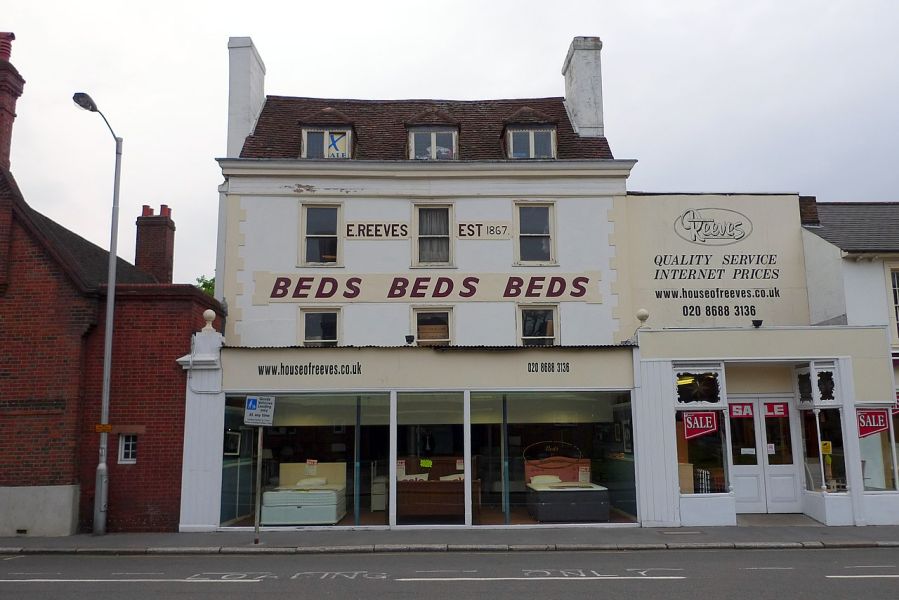
The original Edwin Reeves store, photographed in 2010 (Credit: hahnchen at Wikimedia Commons).
The riots that started in Tottenham on the pretext of an as yet unsubstantiated claim of police malfeasance have now spread to other parts of the capital and further afield. One of their saddest victims “died” in Croydon today.

The original Edwin Reeves store, photographed in 2010 (Credit: hahnchen at Wikimedia Commons).
After Mark Duggan was shot dead by armed police in Tottenham, a peaceful demonstration was hijacked by thugs. Because most of these thugs were black, it would be racist to criticise them, and that would never do. When the rioting spread to other areas and whites joined in, heck, they were disaffected youth. Maybe they were getting out of hand, but what else can you expect from people who have been consigned to the scrap heap from the day they left school?
According to the police – who for once might just be believed – the third wave is not black youth, nor white and black youth, but is orchestrated by people using social networking sites. There have been reports of older men driving around in cars and directing the violence. What is their excuse?
It is not as if these thugs, opportunists and thieves are even targetting the “right” people; it is the banks that have brought this country to its knees, in particular the speculators and fund (mis)managers in the City of London; the so-called investment bankers. These people produce absolutely nothing, what they do is run up debts that the rest of us are told we must pay. Did the wideboys and the black bloch target them? No, instead they have been looting and burning working class neighbourhoods and high street stores.
The cry of racism is particularly vacuous; black residents are suffering every bit as much as everybody else; some of them have been lucky to escape with their lives. A carpet showroom in Tottenham was set ablaze, an act that could have resulted in mass murder, because people were living in a number of apartments above it. Either the rioters didn’t know or didn’t care.
Now the riots, flames and senseless violence have spread further afield, including to Birmingham, but much closer to the epi-centre of this current madness is a particularly poignant tragedy. The BBC Breakfast news programme this morning covered the riots extensively, during which it interviewed two older men from Croydon; they were both named Mr Reeves, and one was the father of the other.
In the mid-19th Century, Edwin Reeves of Sherbourne, Dorset, moved to Croydon, a town that according to the 1871 census had a population of less than 60,000 including Coulsdon and Purley. In 1867, Edwin Reeves opened for business on a site opposite the Croydon Parish Church in Church Street. The family firm also opened branches in both nearby Caterham and its founder’s hometown, Sherbourne. His son, William, transformed it into a private limited company, then William T. Reeves became the Managing Director until his death in 1982, when he was succeeded by his son Maurice. Currently the company is – or was – run by Trevor and Graham Reeves and the third director David Barnes.
In the 1970s, the company was downsized, and in the mid 1980s its sale base was reduced to “purely new furniture and beds for the modern household”. By 2001, Croydon had a population of over 330,000, and the Reeves family firm was doing nicely. Ten years later, having survived two world wars and the Great Depression in between, it went up in flames due to some moron with a match and a grievance against those with more money in their pockets than him. There is some solace for Trevor Reeves, the company had two stores, and the fire crews managed to save the other one. The firm employed 15 people; doubtless after this, it will downsize again. Edwin Reeves must be turning in his grave.
[The above article was first published August 9, 2011. The photograph associated with the original – which may or may not have been added by me; did not archive nor did it save to my hard disc. I believe the one uploaded here is the same, or if not the same, similar.]
Back To Digital Journal Index